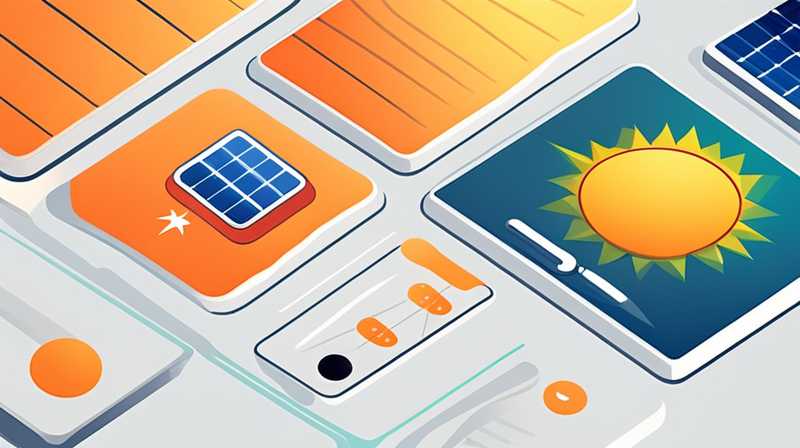
1. SOLAR POWER GENERATOR TYPES AND THEIR ENERGIZING CAPACITY
Solar power generators come in a variety of types, each designed for specific uses and environments. 1. Portable solar power generators offer mobility, making them ideal for camping trips or emergency situations. These units exceed in providing immediate power in remote areas without access to the electrical grid. 2. Home solar power systems, on the other hand, cater to households aiming for energy independence. These systems can generate sufficient energy to run appliances, charge gadgets, and store excess power for later use. A deeper understanding of power output, energy storage, and compatibility with home infrastructure can significantly impact your choice.
2. COST-EFFECTIVENESS AND INVESTMENT RETURNS
When evaluating which solar power generator to acquire, the economic implications are paramount. Initially, portable solar units may seem more affordable, but when considering longevity and durability, home systems can provide better returns. Often, ease of installation and maintenance can influence lifetime costs. The potential for reduced electricity bills and various tax incentives makes the permanent installations even more appealing for long-term investments. Assessing how these generators can reduce dependency on fossil fuels is equally crucial, as sustainability continues to hold weight in purchase decisions.
3. ENERGY DEMAND AND USAGE SCENARIOS
The optimal solar generator often depends on individual energy requirements. 1. Low-energy users, such as those who primarily charge mobile devices, may benefit from smaller, less powerful models while maintaining convenience. 2. Conversely, households with higher energy demands, like families with multiple electronics and appliances, should explore robust generators capable of supporting various loads simultaneously. Each use case presents unique challenges; thus, understanding the fluctuations in energy demand can guide users in selecting the most suitable generator.
4. BATTERY STORAGE AND EFFICIENCY
Key to the performance of solar power generators is the efficiency of their batteries. A solar power generator’s battery influences not just how much energy can be stored but also how quickly it can be recharged during daylight hours. While some portable generators come with proprietary battery systems, others use standardized options that may offer broader compatibility. Diving further into solar charge controllers, users can gain insights into how energy conversion and transfer occur. This knowledge can greatly enhance the lifespan of batteries while still achieving maximum output.
5. ENVIRONMENTAL IMPACT AND SUSTAINABILITY
Solar power generators emerge not just as practical solutions but also as eco-friendly choices. Utilizing sunlight as a resource dramatically lowers one’s carbon footprint. Assessing how different solar technologies contribute to renewable energy goals can significantly influence public awareness and advocacy for cleaner energy alternatives. Overall, the choice of solar generators extends beyond mere consumerism; it embodies a commitment to protecting our environment.
6. BRANDS AND PRODUCT PERFORMANCE COMPARISONS
When choosing between solar generators, comparing brands is essential. Various manufacturers provide differing warranty lengths, customer support, and product lifespans. Key brands in the market often offer various models tailored to unique consumer needs. Studying user reviews can provide insights into real-world performance and reliability, guiding potential buyers towards choices that fulfill not only their energy requirements but also align with their values.
FAQs
WHAT FACTORS SHOULD I CONSIDER WHEN BUYING A SOLAR GENERATOR?
When entering the solar generator market, several considerations should dictate your selection process. 1. Power Output: This includes understanding your energy needs and ensuring that the generator can meet them efficiently. 2. Portability: If planning to use in remote locations, a lightweight model makes logistical sense. 3. Battery Capacity: The ability of a generator to store energy matters for functionality during evenings or cloudy days. 4. Charging Time: Efficient models can recharge quickly, a crucial feature for those relying on the generator for immediate power needs. 5. Customer Reviews: Feedback from other users illuminates the long-term reliability of a brand or model, factor heavily into deciding if it is worth an investment.
CAN SOLAR POWER GENERATORS WORK EVEN ON CLOUDY DAYS?
Yes, solar power generators are engineered to harness energy even in less-than-perfect weather conditions. 1. Although solar panels generally perform best under direct sunlight, they can still capture diffused sunlight emitted during overcast days. 2. The efficiency varies, with some models designed explicitly to maximize energy capture under cloudy skies. Investing in a hybrid system, which can connect to conventional power sources when solar output is low, provides an additional safety net. Hence, users can maintain energy availability, enhancing reliability through variable weather conditions.
HOW LONG DO SOLAR POWER GENERATORS LAST?
The lifespan of solar power generators can vary considerably depending on quality, usage, and maintenance. 1. High-quality solar generators typically have life expectancies of roughly 10 to 25 years. 2. Factors like climate, operating conditions, and battery types contribute significantly to wear and tear. Regular maintenance can prevent premature degradation, ensuring optimal functioning over time. Furthermore, understanding warranties and manufacturer service programs can bolster the confidence in long-term use as well.
Strength extends beyond mere practicality when choosing a solar power generator. Each option brings with it a range of capabilities, efficiencies, and costs. While an immediate choice may be prompted by current needs, pondering future energy scenarios can offer clarity. As awareness of renewable energy grows, solar power generators stand at the forefront of sustainable technology. This choice transcends simple consumerism and emphasizes embracing a more sustainable lifestyle. Embracing solar technology not only empowers individuals with greater energy independence but also places them at the helm of a broader environmental movement.
Through rigorous analysis of structure, performance, and ecological implications, consumers can obtain well-rounded knowledge for making informed decisions. Empowerment through education becomes pivotal in navigating the complexities of energy solutions. As the world pivots towards more renewable sources to combat climate change, the choice of a solar power generator reflects a commitment to a greener future. Consumers should engage fully with the strengths, weaknesses, and potential of the solar power options at their disposal and discover the practical changes they can implement today for a sustainable tomorrow.
Original article by NenPower, If reposted, please credit the source: https://nenpower.com/blog/which-solar-power-generator-is-better/


